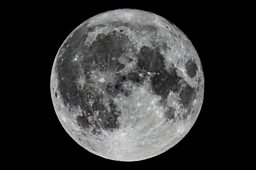Six Moral Dilemmas Facing Space Exploration
In a four-part miniseries Sideways: A New Frontier, Matthew Syed gazes beyond the blue marble we call home and into the vast reaches of outer space. Settling on other planets and expanding human civilization means confronting the ethical dilemmas surrounding a new era of space exploration. Should we be venturing out into the universe? What does space travel mean for our lives on Earth? And should we really be so eager to meet extraterrestrial life? Matthew is joined by an array of experts from scientific and cultural fields to discuss these issues.
Here are six out-of-this-world moral quandaries that Matthew tackles in his new miniseries…
Should we try to communicate with aliens, and what if they don’t want to be friends?
In 1974, scientists sent out The Arecibo Message: Our first ever attempt to contact extraterrestrials. The pixelated image depicts a human DNA molecule, the human silhouette, and a model of our solar system among other things. The image was then converted into an alternating high-and-low pitch signal and beamed out into space.
Who should get to speak for the planet Earth… we haven’t worked that out yet… because it seems so unlikely to so many of us.Astrophysicist Erika Nesvold
Nowadays, however, some in the scientific community hold the belief that revealing ourselves to alien life may not be the smartest idea, after all, what if aliens don’t want to be our friends? As Stephen Hawking once said: “If aliens ever visit us, I think the outcome would be much as when Columbus landed in America, which didn’t turn out well for the Native Americans.”
Astrophysicist Erika Nesvold has been exploring just how unprepared we are for this eventuality. She explains that we don’t know “who should get to speak for the planet Earth… we haven’t worked that out yet… because it seems so unlikely to so many of us.” Films like Denis Villeneuve’s Arrival and books like Lu Cixin’s The Dark Forest ruminate on this concept, bringing the ethics and issues of interplanetary contact to a wider audience.
Of course, we might be the violent colonisers instead, treading over what we deem to be insignificant alien life in our pursuit of intergalactic expansion. Astrobiologist Sarah Rugheimer from York University attempts to detect life on other planets. Rugheimer argues that “if we find microbial life on Mars, that intrinsically has higher moral status than microbial life on Earth.” Because life in that environment is so rare, we need to be extra careful in how we interact with alien life of any form despite how we might destroy such organisms on Earth.
As for the Arecibo message, it is more than likely to fall on deaf ears as it travels 500 million light years to its destination in the Hercules Cluster. Francis Drake, the man behind the project, expressed that the Arecibo message was really more of “a message to ourselves” – validation of our own existence in the vast cosmos.

Do we need laws in space?
Given the seemingly untameable depths of space, one might wonder how we could possibly implement or enforce a legal system. The most solid international agreement is the 1967 Outer Space Treaty, which prohibits any country from putting weapons of mass destruction into space or performing military activities on celestial bodies. But outside of this, there are only five agreed upon space treaties which mostly describe the spirit of space conduct; that space should be “a province of all humankind”.

Space lawyer Michelle Hanlon reminds us that when the original Outer Space Treaty was written, there were only two countries in the space race. Now, there are not just countries but corporations and individuals vying for their spot in our atmosphere.
Inevitably, we will need a renewed focus on the legal framework for space. There are scant resources on neighbouring planets which we’ll need to survive, and this naturally forces competition. The lunar south pole, for example, is one of the few spots on the Moon known to contain hydrogen, oxygen, and water – crucial elements needed to sustain life. At the moment, we have no way to legislate who gets access to these resources. And, as Matthew explores, if we have anything to learn from human history, it could lead to conflict.
Although the idea that all people should have free access to all areas of space is idyllic, it’s not exactly practical. Will this philosophy hold up under the weight of geopolitical self-interest?
‘Space Junk’ – Should we harm our own habitat in the pursuit of space exploration?
In our haste to reach other planets, we may neglect our home, Earth. Since 1957 tens of thousands of objects have been put into orbit, enabling modern conveniences such as mobile phone signals and high-speed internet. But this has also left 25,000 obsolete pieces of space junk floating around, threatening to come crashing down on our heads. This phenomenon was predicted back in 1978 by NASA scientist Donald Kessler, who said that with the abundance of satellites we would soon have “a debris field of space junk around the planet that would prevent us getting out of our own orbit.”
“If you have a space object that does harm to anything on Earth, you are absolutely liable.”Michelle L.D. Hanlon is the Executive Director of the Centre for Air and Space Law
Michelle Hanlon explains that “if you have a space object that does harm to anything on Earth, you are absolutely liable.” It’s in countries’ own self-interest to monitor their space debris, and so the European Union, Japan, and UK have all committed money towards cleaning up the atmosphere. The U.S. also has an act prepared to tackle the issue.
And yet there are arguments that we still need long-term guidelines on space traffic management moving forward – preferably before we throw ourselves too fully into grander ambitions with space travel. And many believe there's no real way to slow down space exploration. Billionaires like Elon Musk will likely continue their forward march to expand humanity’s ambitions in space.
Should we take human remains to the Moon?
While many of our concerns around space are more technological or philosophical in nature, there are also deep spiritual connections that many cultures share with both space itself and the celestial bodies that inhabit it.
In January of 2024, a private spacecraft from the company Celestis planned to journey to the Moon with the cremated remains of 70 humans and a dog, to give the bodies a final resting place among the stars. Members of the Native American Navajo tribe raised an objection to the mission, citing that the Moon was a sacred place for their people.
Buu Nygren, the president of the largest Native American tribe, the Navajo, said in a CNN interview in January 2024: "To know that you have human remains circling the earth, that's a little concerning to think about because a lot of us pray to the moon, and that's the female counterpart of the sun in our culture. The moon is sacred. It's in our songs, it's in our stories, it's in our creation. We've used the moon as a place that we've looked to for hundreds of years to make sure that we continue to exist."
It wasn’t the first time they were making this complaint. Deana Weibel, Professor of Anthropology at Grand Valley State University, states that “from the Navajo Nation’s perspective, human remains are extremely contaminating.”
The mission went ahead despite these protests but, as it turns out, the spacecraft had a fault and was left to burn up in the atmosphere.
The issue remains: How much consideration should be given to the religious beliefs of different cultures when it comes to space exploration? Celestis points out that people from many different traditions use their service and that they respect all religions and cultures. But they argue that no individual religion should dictate whether a space mission should be approved, because scientific exploration shouldn’t be subject to a religious test.

Should we inhabit a home away from Earth?
Underlying all the many considerations explored, there’s one fundamental question: Should we even be trying to settle other planets anyway? There are many practical reasons for wanting to explore and settle other planets: New resources, possible new materials and scientific discoveries. Musk and his contemporaries believe that our goal should be to become a multi-planet civilization. In Musk’s own words, “we don’t want to be one of those lame one-planet civilizations.”

The allure of space is powerful. Our curiosity draws us outwards even despite our fear. Professor Robert M Geraci, Knight Chair for the Study of Religion at Knox University, describes how the seeds of space exploration were sown by Nikolai Fyodorov with his theory of Russian cosmism. Essentially, Fyodorov believed that “it was the Christian obligation to go and resurrect the dead… first we would stop death, and then we would learn how to resurrect people.” In pursuing this goal, we would eventually need to collect the bodies of people that had been turned into stardust from outer space.
That may all seem a little out-of-this-world. But Fyodorov has a direct line to the space pioneers of today, having influenced Sergei Korolev (who designed Russia’s Sputnik satellite), who in turn is an inspiration for Musk. While Musk might not literally want to resurrect all of humanity, his ambitions are similarly grand: To evolve the human species through technological development.
Perhaps the more worrying motivation for inhabiting other planets is as a lifeline for some kind of cataclysmic event that destroys our own, such as an asteroid hit or a climate-decimating event. But our ambitions in space can cause damage here on Earth – who’s to say that securing a lifeline on other planets won’t lead us to neglect our home?
Do we need to go into space to appreciate Earth?
After her first ever space shuttle flight, astronaut Nicole Stott remarked, “Huddled there with my other six crew mates, I just remember how overwhelmingly beautiful it was. Every time I looked out of the window, I felt that same sense of wonder and connection… I think it’s going to be with me for the rest of my life.”
What she is describing was a cognitive effect theorised in 1984 by Frank White, who labelled it the Overview Effect. Whilst flying in an aeroplane, Frank had a revelation: “If I lived off of the Earth I would have an overview. I would see the Earth as a whole, I would understand everything is interconnected and interrelated, I would experience the Overview Effect.”
Many astronauts return from space with a new perspective on the world and an eagerness to share that experience. They also remark upon the abundance of Earth when returning from missions. As anthropologist Deana Weibel, who’s interviewed a number of American astronauts, says “They become very protective of the planet, much more concerned about global climate change, much more concerned about extinction events. And a much stronger sense that this is all we've got.”
As Matthew Syed summarises: “I really do think that if we’re fortunate enough to go into space, it does seem like an experience we could all benefit from. Helping us to put aside petty differences to cooperate for the greater good of humanity. Of course, this space view can’t suddenly solve intractable problems like conflict in the Middle East or Ukraine, but I’m not sure that is what the Overview Effect is actually suggesting. It’s about creating the possibility that we can alter our way of thinking, see ourselves as part of something bigger.”
To hear more about our endeavours in space and the thought leaders behind interplanetary travel, listen to Sideways: A New Frontier.





